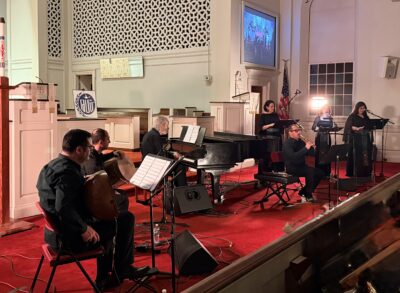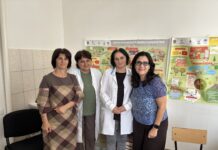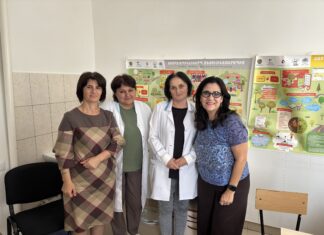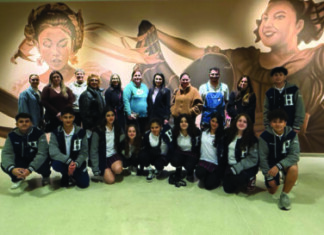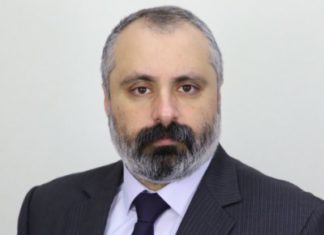LOS ANGELES — On Saturday, August 18, the Armenian General Benevolent Union (AGBU) Hye Geen hosted a conference titled: “Sexual Harassment: Understand, Prevent, Respond” at the AGBU Vatche and Tamar Manoukian Center. The conference aimed to bring forth the subject of sexual harassment — something that is often difficult to talk about. Three experts were invited to speak on the topic in order to provide an outlook on the different facets of sexual harassment.
The first speaker was Alene Tchekmedyian, staff writer at the Los Angeles Times. Tchekmedyian earned her undergraduate degree from UCLA and later went on to receive her master’s degree in journalism from Columbia. She opened the discussion by providing statistics that show the increase of sexual harassment and assault reports over the years. In 2015, there were more than 90,000 reported incidents in the United States, and that number keeps increasing. Many incidents don’t get reported out of a fear of reporting, or the fear of being told to “tough it out.”
Tchekmedyian discussed the #MeToo movement that began in October 2017. This social-media-based movement began in the entertainment industry, exposing sexual harassment and assault perpetrators to the public, but has now expanded and reached thousands of others. The goal of this movement is to create awareness of the magnitude of this societal issue, since roughly only 25% of these incidents get reported. As a result of the #MeToo movement, more than 40 of the accused have faced the consequences of their actions, some even losing their jobs and titles.
While Tchekmedyian shed light on the social aspects and statistics of sexual harassment, Los Angeles County Deputy District Attorney, Rouman Ebrahim informed attendants about the legal consequences of sexual harassment and assault cases. During his career, Ebrahim has spent eight years working explicitly on sex crimes. Focusing on educating the attendees, he began by explaining the penal code and statute of limitations regarding sexual incident reports. Before turning his attention to cases within California, Ebrahim discussed that cases across the United States are treated differently due to differing laws regarding sexual harassment and assault. In California, most cases have to be prosecuted within three years, but in some cases, the statute of limitations have and can be extended to ten years or more. Even if a prosecution does not occur, he reminded attendees that it is still important to file a report, as it will create a record against the offender, and help in future cases. Ebrahim finished strong by emphasizing the importance of taking matters into our own hands within the parameters of the law, and not waiting for the criminal justice system to resolve the issue of sexual harassment. He stressed that having courage to stand up as a whole against sexual harassment and crimes is necessary. It all starts with not being afraid to report incidents.
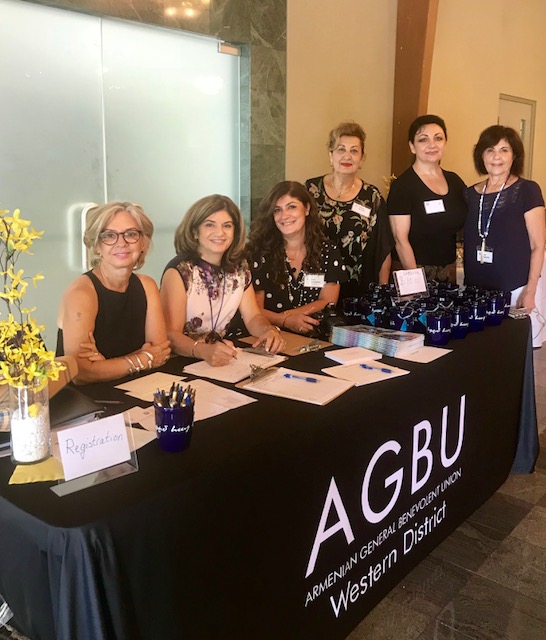
Following Ebrahim’s educational and empowering speech, Shaheh Shabanian, a peer educator at California State University Northridge and a co-founder of Men C.A.R.E., a campus-based activism group that hosts workshops and presentations revolving around rape culture, sexual consent, and gender-based violence, took the stage. Men C.A.R.E stands for Men Creating Attitudes for a Rape-free Environment. Shabanian defined the rape culture as being a sociological concept. Society promotes behaviors that are damaging, violent, and disruptive, which leads to toxic masculinity, and in turn creates an environment for sexual harassment to be viewed as normal. In many cases, that sociological concept is why victims of sexual assault aren’t believed. Men C.A.R.E works against these social characteristics to encourage and support healthy masculinity. It promotes safe behaviors and pushes for bystander intervention. Shabanian echoed Ebrahim’s message and reminded attendees of the conference the importance of being an active voice in today’s society. Openly discussing toxic habits with the youth is important in order to prevent them from developing.
